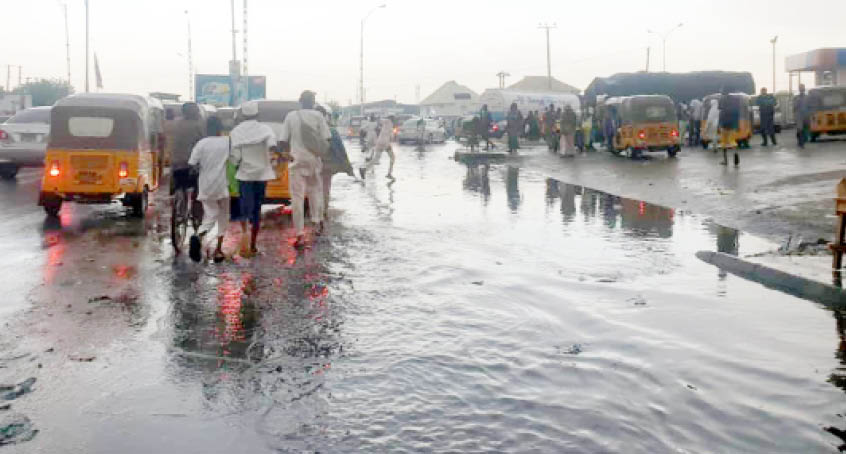The Caritas Nigeria (Catholic Caritas Foundation of Nigeria) has urged Nigerians to support the government in tackle environmental degradation and promote food security in the country.
The Episcopal Chairman, Church and Society Department of Catholic Secretariat of Nigeria (CSN), Most Rev Dr. Alfred Adewale Martins, gave the charge on Wednesday in Abuja, at a two-day summit to commemorate the seventh anniversary of Laudato Si, the Pope Francis’ encyclical, published in May 2015.
The summit with the theme, ‘Synod of Synodality in the Context of Laudato Si: The Nigerian Experience’, was to rally Nigerians to actively act on global warming and prevent environmental disaster due to negative action of citizens to contribute to flooding and other environmental emergencies across the country.
According to him, Nigeria faces environmental problems, and many of these seem to be worsening with time, thereby bringing the country into a time of environmental emergency now.
“It has therefore become important to continually raise awareness of the existence of these issues, and to propose what can be done to reduce their negative impact. Some of the key issues are, pollution of the air, water and soil caused by toxins such as plastics, heavy metals and nitrates.”
“We are accustomed to the suffocating experience of gases released by vehicles, factories, combustion of fossil fuels, acid rain, oil spill and industrial wastes.
The phenomenon of acidic rain as experienced by residents of Port Harcourt and environs is a classic example of how uncontrolled air pollution can produce very dangerous outcomes on our health and wellbeing,” Dr. Martins said.
He also said that global warming occasioned by greenhouse gases emitted from human activities cause the depletion of the Ozone layer which protects the earth from harmful radiation from the atmosphere.
Martins, who is also the Catholic Archbishop of Lagos, said that such pollutant chemicals known as chlorofluorocarbons (CFCs) are used in air conditioners among others.
He said, “The resultant increase in general (global) temperature causes the melting of polar ice caps leading to rising sea levels, flash floods and erosion. We who live in Lagos recently saw how vehicles were swallowed by raging flood waters. Unsustainable agriculture and land use, among other causes, have caused shortage of resources such as food, water and energy crisis. The use of chemical fertilizers, pesticides and insecticides also destroy soil ecology and natural herbage.
“Unsanitary waste disposal practices have led to large volumes of wastes being dumped into waterways and living quarters. Also, medical, pharmaceutical, electronic and nuclear waste are poorly managed, and they constitute immediate hazards to us and particularly the environment. In fact, plastic waste is a national epidemic in Nigeria.”
He also noted that the genuine spate of herder/farmer clashes are a part of the national nightmare brought about by loss of herbage and traditional grazing farmlands.
“Thus, in addition to toxic land-grabbing for economic exploitation and political conquest, ecological pressure and struggle for means of livelihood are significant contributory factors to our current national and food insecurity.”
He, therefore called for common response to ‘Laudato Si’, through concrete actions like adopting the use of renewable energy, green investment structure, fostering ecological conversion, and a focused response to managing the climate change crises.

 Join Daily Trust WhatsApp Community For Quick Access To News and Happenings Around You.
Join Daily Trust WhatsApp Community For Quick Access To News and Happenings Around You.


